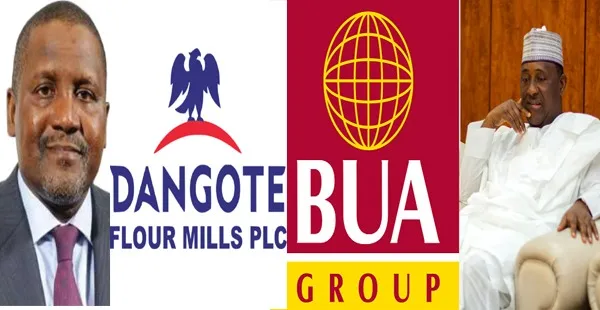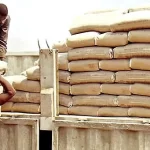In a portrayal of economic turbulence, eight Nigerian manufacturers, including industry giants like Dangote, BUA, and Lafarge, faced a collective forex loss totaling N627.7 billion in the first quarter of 2024.
This revelation, drawn from a comprehensive analysis of financial statements, underscores the profound impact of currency depreciation on corporate balance sheets.
Join our WhatsApp ChannelThe depreciation of the naira, which reached unprecedented levels early in the year, played a decisive role in amplifying these losses. From January to March 2024, the naira plummeted to as low as N1,900 against the dollar in the parallel market, significantly devaluing companies’ forex-denominated obligations.
For Lafarge Africa Plc, renowned for its cement production, the forex losses soared to N21.8 billion, a sharp contrast from the modest N320 million gain recorded in the same period the previous year. Lolu Alade-Akinyemi, CEO of Lafarge Africa, lamented the impact on profitability, citing a 65% decline in after-tax profits due to forex fluctuations.
Similarly, Dangote Cement reported a staggering forex loss of N63.77 billion, reflecting a substantial increase from N9.79 billion in Q1 2023. Despite this setback, the company managed to double its revenue to N817.35 billion, demonstrating resilience amid economic challenges.
READ ALSO: Fitch Praises Tinubu’s Policies, Raises Concern Over $10bn Nigeria Forex Loan
In the food and beverage sector, Nestle Nigeria faced a forex loss amounting to N166.9 billion. CEO Wassim Elhusseini attributed this to the adverse effects of naira devaluation on foreign currency obligations, leading to a net loss of N142.7 billion for the quarter.
The brewing industry was not spared either, with International Breweries and Nigerian Breweries reporting forex losses of N162.2 billion and N72.8 billion respectively. These losses contributed to International Breweries’ sixth consecutive quarter of financial decline, underscoring the sector’s vulnerability to forex volatility.
Dangote Sugar and BUA Foods also grappled with substantial forex losses amounting to N102.9 billion and N27.2 billion respectively. Ayodele Abioye, Managing Director of BUA Foods, highlighted the company’s reliance on foreign exchange for raw materials as a major challenge amidst escalating costs.
According to Olusegun Vincent, a senior lecturer at Pan-Atlantic University, forex losses in financial statements do not necessarily translate to immediate cash outflows. Unrealized losses, he explained, occur when companies hold foreign obligations that fluctuate in value due to exchange rate changes, impacting financial reporting without affecting actual cash flow.
The cumulative effect of these forex losses has been profound, affecting key financial metrics such as return on assets and net profitability across various sectors. Despite efforts by companies to mitigate risks through hedging strategies and operational efficiencies, the volatility in forex markets continues to pose significant challenges.
Looking ahead, stakeholders emphasize the importance of economic stability and policy predictability to mitigate forex risks and restore investor confidence. The resilience shown by some companies amidst these challenges underscores the adaptability of Nigeria’s corporate sector but also highlights the urgent need for sustainable economic reforms to safeguard against future currency shocks.
As Nigerian businesses navigate these turbulent economic waters, the impact of forex volatility on corporate earnings remains a critical issue demanding careful attention and proactive management strategies from industry leaders and policymakers alike.
Emmanuel Ochayi is a journalist. He is a graduate of the University of Lagos, School of first choice and the nations pride. Emmanuel is keen on exploring writing angles in different areas, including Business, climate change, politics, Education, and others.
- Emmanuel Ochayihttps://www.primebusiness.africa/author/ochayi/
- Emmanuel Ochayihttps://www.primebusiness.africa/author/ochayi/
- Emmanuel Ochayihttps://www.primebusiness.africa/author/ochayi/
- Emmanuel Ochayihttps://www.primebusiness.africa/author/ochayi/



















Follow Us